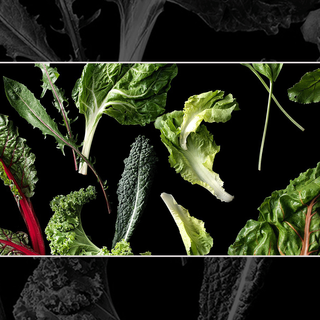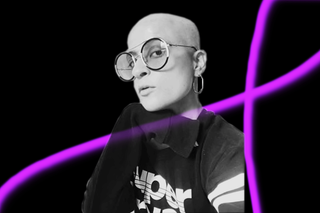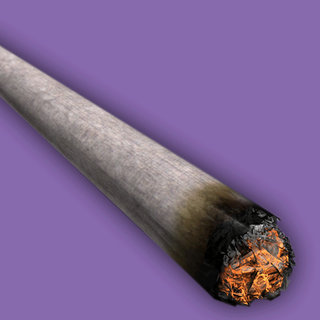
For Cancer Patients, Survivors, Positive Body Image Is a Hidden Struggle
Cancer and its treatment affect all of the physical traits society tells us to value most.

Mugdha Deshmukh was diagnosed with spindle cell sarcoma, which manifested as a painful tumor on her shoulder, in 2013. She underwent surgery and a month of radiation, which made the surgical scar darken; now, six years in remission, she has “a crazy big scar,” visible when she wears backless outfits. “People ask me to apply ointments, or something, as it looks ugly,” she says.
Dubbing cancer ‘the emperor of maladies’ is not hyperbole. The disease is the second-leading cause of death globally, and is the second-most deadly disease in India. 2016 saw 14 lakh cancer patients in India alone, a number that has continued to rise.
For many, thanks to modern medicine and recent breakthroughs, cancer will not be a death warrant. Which opens up space for a conversation around what once might have been thought of as trivial: the changes in physical appearance cancer often wreaks on its survivors.
Some changes, like Deshmukh’s, are long lasting. Others are temporary, but perhaps even more unsettling. Bollywood actress Manisha Koirala, who dealt with ovarian cancer in 2012, said in an interview: “By the end of the treatment, I was bald and didn’t have eyebrows…I was very hesitant to step outside initially.” And actress Sonali Bendre, who recently overcame cancer, also spoke of the fear of stepping out in public after she lost her hair, eyebrows and eyelashes during aggressive treatment. She spoke about her ongoing struggles to accept her changed body and appearance, and to push herself back into society despite her fear of being judged.
Their struggles are common to cancer patients and survivors interviewed. In India, the norms of conventional female beauty list thick, long hair, flawless, lightly-toned skin, and a slim, curvaceous figure; for men, a thick head of hair and lightly-toned skin are also paramount – all physical traits that cancer and its treatment affect. An onslaught of overt and subliminal messages proclaiming these ideals can be found everywhere – social media, television shows, movies, advertisements, books, even our home environment. Beauty norms pervade every mode of communication there is, making them an unfortunately ubiquitous construct that we absorb into our subconscious and, subsequently, use as a prism through which we view ourselves and others.
These norms are why Deshmukh receives the comments she does about her cancer scar, and why actresses Koirala and Bendre were so apprehensive about facing the world throughout their ordeal. Amid the endeavor to preserve one’s life, is the less-discussed effort to maintain a positive body image, during and post-cancer treatment, in the face of constant, unsparing societal judgement.
*
The worry over appearance starts as soon as the diagnosis is confirmed. S. is 34, married, has a toddler, and was recently diagnosed with breast cancer. When we interacted, she had yet to learn about the stage and extent of her cancer, but was already deep in research, looking for methods to camouflage the anticipated physical fallout of chemotherapy so that, “I can look normal,” she said.
She was on the lookout for wigs to conceal her impending hair loss, and had found out that “nails become black and fall off during chemo. I am exploring acrylic nails, but there can be complications associated with it.” On reading up on other cosmetics to cover up side-effects of treatment, she came to realize the carcinogens they contain may harm her body more than help her cause. Her research also weighed post-mastectomy options. “I am not sure whether I want to [opt for] breast conservation, or just use a prosthetic bra.”
Related on The Swaddle:
The Shame and Scandal of Indian Women’s Hair Follicles
She added, “[Work involves] a lot of interaction and meetings with clients and other parties, and being presentable is my number-one concern…The pressure to look the part is immense in our society…Though honestly, since I have not really gone through a session of chemo yet, I may not be able to comment [on] how much strength I will have to even put up the show.”
Treatment, of course, brings the actual changes many fear.
Rahul Bhardwaj, 24, was diagnosed with acute myloid leukaemia, a form of blood cancer, on the penultimate day of 2017. Treatment caused him to lose weight and look almost skeletal; his skin darkened and began to flake off every few weeks. He kept indoors during this entire period. “[I couldn’t have gone] outside with this appearance…It was very horrible when I saw myself in mirror.”
Those who are able to identify and discard the unyieldingly narrow parameters of beauty redefine them to suit their needs. But the journey to self-acceptance isn’t a simple one and sloughing off judgement is not an easy task.
“It is a reminder of what I have been through, so I proudly show off my scar,” Deshmukh says.
*
While there are non-profit organizations that offer financial and medical aid along with palliative care, mainstream medical institutions in India tend to overlook the high emotional toll of cancer treatment, especially the toll from cosmetic changes. Instead, they focus mainly on treatment itself. None of the patients and survivors interviewed were offered psychological aid during treatment.
It’s due to “a lack of awareness among both doctors and patients, no specific guidelines, and the additional cost attached to it, apart from the regular medicines,” says Dr. Attulraj Sinha, the manager at Effectual Services, an advisory firm. Dr. Sinha believes developing governmental policies would help, and suggests the inclusion of appropriate training within medical programs as a solution.
Related on The Swaddle:
How Will Judges Pick a Miss India 2019? They All Look The Same
Dr. Deepali Bhatte, a doctor working in gynecological oncology, experienced the bridging of physical and psychological cancer care when she moved from India to the UK and began to work alongside clinical nurse specialists (CNSs). “Usually, patients discuss these details [of body image] with them. They talk more about treatment with us [doctors]. They may not feel comfortable talking about vanity [with us] as they fear being judged, but they would open up to a CNS. Of course, the biggest concern they have is about losing hair.”
Her colleague Katie Ayris, who has been in oncology for 16 years as a CNS, concurs that hair loss is a “massive issue” for patients.
But, sadly, even with a systemic multi-dimensional approach to cancer treatment, cracks do develop. Katy Marling, another colleague of Dr. Bhatte’s, who is a Nurse Care Manager in gynecological oncology, observed during her tenure as a CNS that “the waiting list for professional psychologists was painfully long, and most of the women who wished to access the services had already had their treatment and undergone their changes before they could access.”
She noticed that “the constant scrolling on their phones whilst awaiting their appointment was a source of anxiety for them. I would watch as they trawled through endless images of beautiful women on social media whilst sitting and waiting to be told whether they would need to undergo a full hysterectomy or not.”
The gravity of the issue and harm caused by society’s unrealistic constructs of beauty has yet to be truly processed in India and maybe even globally. Until a more holistic cancer care system is set in place and a spectral definition of beauty adopted, we can be heartened by deeds of organizations like Ketto, an Indian crowdfunding platform that adopts social change campaigns to catalyze inclusivity. One such was its #ItsOnlyHairChallenge, which encouraged people to cut off their hair in support of those undergoing cancer treatment, “to show that we support them, and are with them through their journey, and that it’s only hair, it’ll grow back,” says Zaheer Adenwala, Ketto’s CTO and co-founder. “We’ve also been working closely with a manufacturer for a bra for breast cancer patients,” he adds.
Although it may seem small, endeavors like these are crucial steps towards a more empathetic society, and hopefully, towards a more compassionate system as well.
Suchita Parikh-Mundul likes attaching helpful descriptors to nouns. For instance, she's a half-baked writer, pseudo poet, full-time bibliophile and serial vacationist. She also enjoys creating her own vocabulary, so that's 'vacationist,' explained. She's worked with print magazines and websites, and published a book of poetry (juvenilia) a long, long time ago. She currently freelances as a writer and copy editor.
Related


Flavoring Liquids in E‑Cigarettes May Increase Risk of Heart Disease: Study
